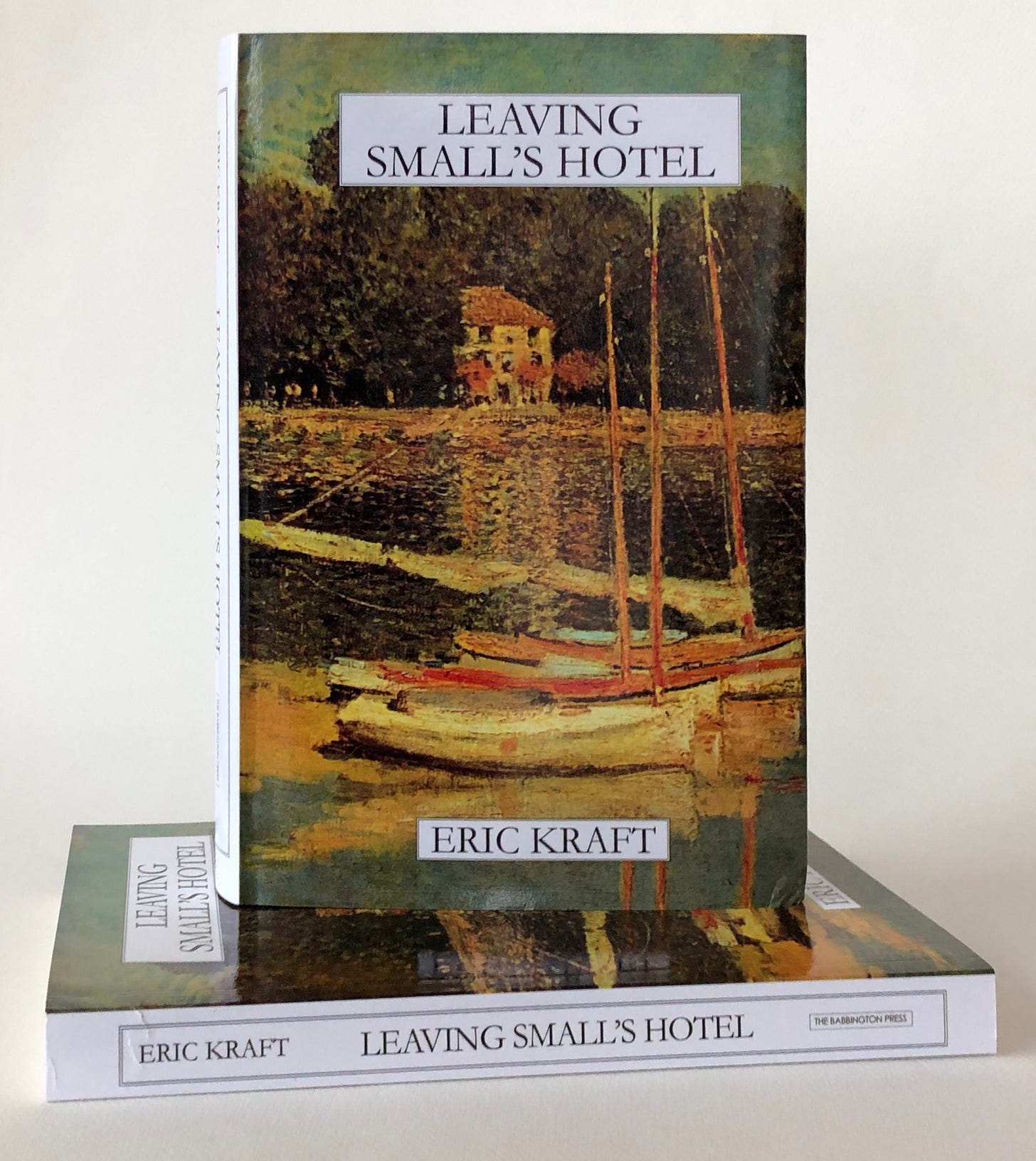Character as Uncontrollable Creation
Rockwell Kingman in Leaving Small’s Hotel, Chapter 22:
HAVING IMAGINED Rockwell Kingman, I seemed to be stuck with him, and he was becoming annoying. He wouldn’t dance to my tune.
Evil
Rockwell Kingman in Leaving Small’s Hotel, Chapter 22:
We are elevated animals, blessed, or cursed, with the ability to distinguish right from wrong. We know good from evil. We have our appetites, we have our hungers, we have our animal urges, but we know how to control them, and if we do not control them it is because we choose not to control them, and so a killer who chooses to kill — a killer like me — is not simply being a slave to his animal nature. He is — and I say this with pride because I have made the choice, I have chosen to kill — he is evil. That’s what I am. Evil. I am an evil motherfucker. I have no scruples — they don’t even enter the picture — but I know who I am, and I know what I am, […]
Diderot, in a letter to Landois published in Grimm’s La Correspondance littéraire, philosophique et critique, July 1, 1756:
Do not forget that a bad action never goes unpunished. I say never, because the first bad deed we commit disposes us toward a second, and that second towards a third and thus we advance towards the scorn of our fellow-humans, which is the greatest of all evils and pains. . . . The crease is taken. The cloth will keep it forever.
Diderot, Encyclopedia, (prospectus or defense, translated by Jacques Barzun and Ralph H. Bowen):
I have no wish to see evil deeds preserved; it would be better if they had never taken place. Men have no need of bad examples, nor has human nature any need of being further cried down. It should not be necessary to make any mention of discreditable actions except when these have been followed—not by the loss of the evildoer’s life and worldly goods, which is all too often the sad consequence of virtuous behavior—but by a more fitting punishment of the wicked man: I want him to be wretched and despised as he contemplates the splendid rewards he has gained by his crimes.
See also:
Characters and Characterization TG 538, TG 540, TG 544, TG 548; Character as Uncontrollable Creation TG 117; Characters: Their Origins and Their Relationship to the Author TG 907
Evil TG 489
Good Works, Noble Efforts TG 445
Have you missed an episode or two or several?
You can begin reading at the beginning or you can catch up by visiting the archive or consulting the index to the Topical Guide. The Substack serialization of Little Follies begins here; Herb ’n’ Lorna begins here; Reservations Recommended begins here; Where Do You Stop? begins here; What a Piece of Work I Am begins here; At Home with the Glynns begins here; Leaving Small’s Hotel begins here.
You can listen to the episodes on the Personal History podcast. Begin at the beginning or scroll through the episodes to find what you’ve missed. The Substack podcast reading of Little Follies begins here; Herb ’n’ Lorna begins here; Reservations Recommended begins here; Where Do You Stop? begins here; What a Piece of Work I Am begins here; At Home with the Glynns begins here; Leaving Small’s Hotel begins here.
You can listen to “My Mother Takes a Tumble” and “Do Clams Bite?” complete and uninterrupted as audiobooks through YouTube.
You can ensure that you never miss a future issue by getting a free subscription. (You can help support the work by choosing a paid subscription instead.)
At Apple Books you can download free eBooks of Little Follies, Herb ’n’ Lorna, Reservations Recommended, Where Do You Stop?, What a Piece of Work I Am, and At Home with the Glynns.
You can buy hardcover and paperback editions of all the books at Lulu.
You’ll find overviews of the entire work in An Introduction to The Personal History, Adventures, Experiences & Observations of Peter Leroy (a pdf document), The Origin Story (here on substack), Between the Lines (a video, here on Substack), and at Encyclopedia.com.
The serialization of The Personal History, Adventures, Experiences & Observations of Peter Leroy is supported by its readers. I sometimes earn affiliate fees when you click through the affiliate links in a post. EK
The illustration in the banner that opens each episode is from an illustration by Stewart Rouse that first appeared on the cover of the August 1931 issue of Modern Mechanics and Inventions.



